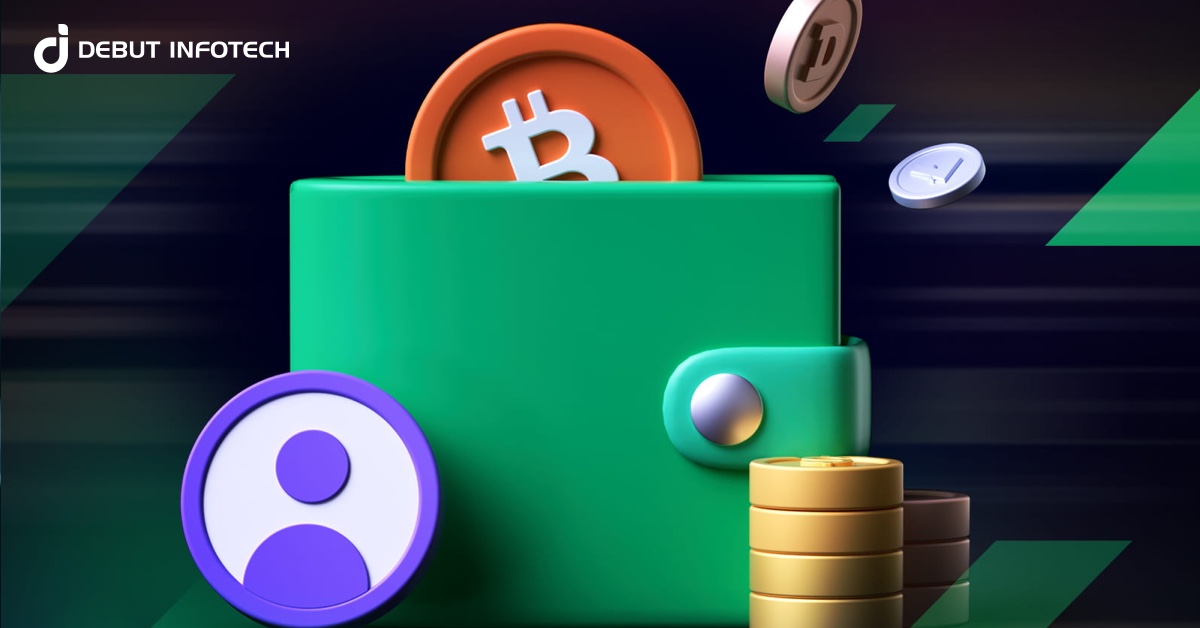In the evolving landscape of digital finance, decentralized wallets are emerging as a crucial tool for managing cryptocurrencies and digital assets. Unlike traditional wallets or centralized digital wallets, decentralized wallets provide users with complete control over their funds, offering a level of security, privacy, and autonomy that is unparalleled. This blog delves into what decentralized wallets are, how they work, their benefits, and the challenges they face.
What Are Decentralized Wallets?
Decentralized wallets, also known as non-custodial wallets, are digital wallets that allow users to store, manage, and transact cryptocurrencies without relying on a central authority. Unlike custodial wallets, where a third party holds the private keys, decentralized wallets give users full control over their private keys and, consequently, their funds. This means that only the user has access to their assets, significantly reducing the risk of hacks, theft, and censorship.
How Do Decentralized Wallets Work?
At the core of decentralized wallets is the concept of private keys. A private key is a cryptographic code that allows users to access their cryptocurrency and authorize transactions. When a user creates a decentralized wallet, they are given a pair of keys: a public key and a private key. The public key is used to receive funds, while the private key is used to sign transactions and access the funds.
Decentralized wallets typically come in various forms, including:
- Software Wallets: These are applications or programs that can be installed on a computer or smartphone. Examples include MetaMask, Trust Wallet, and Exodus.
- Hardware Wallets: These are physical devices that store private keys offline, providing an added layer of security. Examples include Ledger and Trezor.
- Paper Wallets: These are physical documents that contain a user's private and public keys, usually in the form of QR codes. While they are highly secure against online threats, they can be easily lost or damaged.
Benefits of Decentralized Wallets
Decentralized wallets offer several advantages over their centralized counterparts:
- Enhanced Security: Since users have sole control over their private keys, the risk of hacks and thefts associated with centralized exchanges is significantly reduced. Even if a decentralized wallet provider is compromised, the user's funds remain secure as long as their private keys are not exposed.
- Privacy: Decentralized wallets do not require users to provide personal information, ensuring a higher level of privacy. Transactions are pseudonymous, and there is no need for KYC (Know Your Customer) procedures, which are standard with centralized services.
- Autonomy and Control: Users are not dependent on a third party to access their funds. This means they can make transactions at any time, without restrictions or delays imposed by centralized entities.
- Censorship Resistance: Decentralized wallets operate on blockchain technology, which is inherently resistant to censorship. Users can transact freely without fear of being blocked or having their funds frozen by authorities or financial institutions.
Challenges Facing Decentralized Wallets
Despite their many benefits, decentralized wallets are not without their challenges:
- User Responsibility: With great power comes great responsibility. Users must securely store their private keys because losing them means losing access to their funds forever. There is no "forgot password" option in the world of decentralized wallets.
- Usability: While decentralized wallets have made significant strides in user-friendliness, they can still be intimidating for beginners. Understanding the nuances of private keys, seed phrases, and the overall cryptocurrency ecosystem requires a learning curve.
- Regulatory Uncertainty: As governments and regulatory bodies around the world grapple with the rise of cryptocurrencies, the future regulatory landscape for decentralized wallets remains uncertain. Increased regulation could impact the privacy and autonomy that decentralized wallets currently offer.
- Technical Vulnerabilities: While decentralized wallets are generally more secure than centralized ones, they are not immune to technical vulnerabilities. Bugs in the wallet software, phishing attacks, and other forms of cyber threats can still pose risks to users.
The Role of Decentralized Wallets in the Future of Finance
Decentralized wallets are poised to play a pivotal role in the future of finance, particularly as the world moves towards greater acceptance and integration of cryptocurrencies and blockchain technology. They empower individuals by giving them full control over their financial assets, reducing reliance on traditional financial institutions, and promoting financial inclusion.
In addition to their use in personal finance, decentralized wallets are also becoming integral to the burgeoning DeFi (Decentralized Finance) ecosystem. DeFi platforms offer a range of financial services, such as lending, borrowing, and trading, all of which can be accessed through decentralized wallets. This creates a seamless and secure way for users to engage with these services without intermediaries.
Moreover, as decentralized wallets continue to evolve, we can expect to see improvements in their usability, security, and integration with other blockchain-based services. Innovations such as multi-signature wallets, social recovery mechanisms, and enhanced user interfaces are making decentralized wallets more accessible to a broader audience.
Conclusion
Decentralized wallets represent a fundamental shift in how we manage and interact with digital assets. By providing enhanced security, privacy, and control, they offer a compelling alternative to traditional financial systems. While challenges remain, the continued development and adoption of decentralized wallet are likely to drive significant advancements in the financial sector, promoting a more inclusive and autonomous financial future.
As the world embraces the potential of blockchain technology, decentralized wallets will undoubtedly be at the forefront, empowering individuals to take control of their financial destiny and participate in a decentralized, borderless economy.






Comments